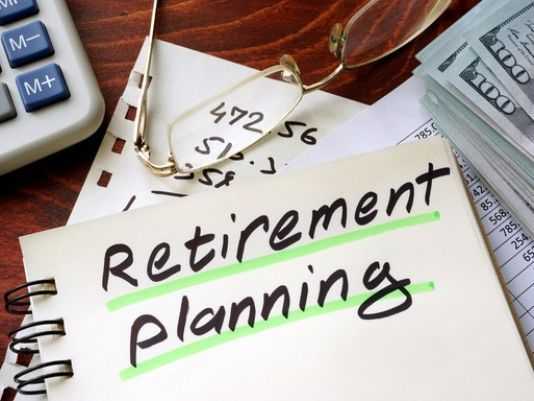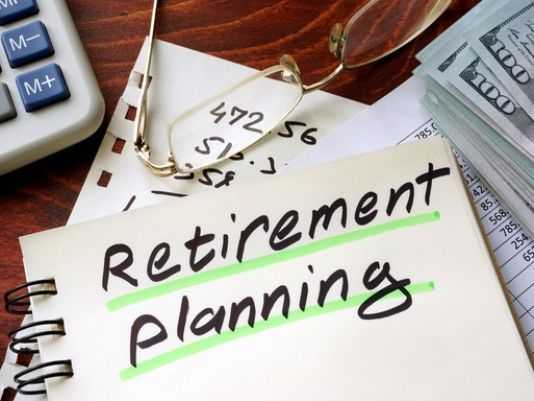Want To Retire In Comfort? You'll Need To Take Some Risks
Want to retire in comfort? You'll need to take some risks
Want to retire in comfort? You'll need to take some risks
When you're investing your hard-earned money for retirement, the last thing you want is to lose the money intended to provide for your future.
Fear of investment losses may prompt you to consider parking your cash in "safe" investments, like certificates of deposit or government bonds carrying an AAA rating. While these investments provide a low rate of return, you may assume you're better off in the long-run by investing where the chances of loss are low and where returns are at least guaranteed.
Unfortunately, by taking the safe road, you could cost yourself the chance at financial security. If you aren't willing to take risks -- especially when you're younger and have time to weather market downturns -- your investments could earn so little it becomes virtually impossible to build a solid nest egg unless you invest a fortune.
Risky vs. safe investments
There is a strong correlation between risk and reward when making investments. Low-risk investments usually have less potential upside. Higher risk investments put you at greater risk of loss, but potential gains are much larger.
One of the safest investments is a Certificate of Deposit. A CD issued by a bank or credit union typically has a fixed interest rate and designated maturity date so you'll know upfront how much money you'll receive. However, you may have to tie up your money for a long time and your return on investment is very low. A CD with a required deposit term of five years provides an annual percentage yield of around 2.25% to 2.4% as of October 2017. Bonds, also considered a relatively safe investment, involve loaning money at a fixed or variable rate to entities like businesses or the government. Interest rates are also low, if borrowers are credit-worthy.
At the other end of the scale, there are very high-risk investments — like options and virtual currencies — which have the potential to provide huge returns but which put average investors at too great a risk of winding up with nothing. For most people, the best "risky" investment is putting money into the stock market. While stocks are riskier than bonds or CDs because there's no guarantee individual companies will succeed, the stock market outperforms safer options over the long-term.
Why you need to take investing risks
It's vital to take reasonable risks — like investing a portion of your money in stocks — because otherwise returns you earn on investments may be so low your investments barely keep pace with inflation.
Let's say you begin investing when you're 30 and want to retire a millionaire by age 65. As this chart shows, the amount you'd need to save would vary dramatically depending upon investment returns.
The difference in the amount you'd need to invest to end up with $1 million is substantial. If your investments earned average annual returns around 6% — around the inflation-adjusted historic average for the stock market — you could invest more than $4,500 less every year than with investments earning around 4% annually — close to the historic average for 3-month treasury bills.
Investing enough to build a big nest egg could be even more challenging for today's investors saving for tomorrow's retirement, as long-term stock market returns on the lower-end of the scale are expected going forward, and as 4% for conservative investments is a generous estimate today. Returns of 1% or less are not impossible for bond investors and with both low interest rates and market fundamentals suggesting stocks will produce below-average returns, taking calculated risks now may be more important than ever.
How much can playing it safe cost you?
The vast differences in the amount you must save based on rate of return show why asset allocation is so important. If you are too conservative, you'd need to invest far too great a portion of your income to end up with enough money to live on as a retiree.
If you earn the median salary of around $51,272 and assume you'll earn an estimated 6% annually over 35 years of investing, it would be feasible to retire a millionaire by investing just about 16% of your income. That's doable, if challenging. But, if you earn only 4% because your investments are too conservative, you'd need to invest a whopping 25% of your annual earnings — which, for most people, is simply not possible. What seemed safe — investing in bonds where you can't lose — turns out to be the wrong choice.
The appropriate asset allocation — or the way your money should be divided among stocks and bonds — varies based on age and risk tolerance. While a good rule of thumb is to subtract your age from 110 to determine the percentage of your portfolio to hold in stocks, you can also take a risk tolerance quiz to identify the personalized allocation that will put you on the path toward a comfortable retirement.
Source:- https://www.usatoday.com/story/money/personalfinance/retirement/2017/10/14/want-to-retire-in-comfort-youll-need-to-take-some-risks/106487498/
You May Also Like
Retirement Dream -- More Money Fo..
Must-have Tools And Tips For Year..
What You Don't Know About Social ..
3 Unexpected Retirement Costs Tha..
This Is The Maximum Social Securi..
The Profits Made From Flipping Ho..
Must-have Tools And Tips For Year..
Ask A Fool: IRA Vs. 401(k), Which..
Share the joy
Recent News
Retirement dream -- more money for travel, less for health care -- tough to achieve
What you don't know about Social Security in 2018
Must-have tools and tips for year-end retirement planning
3 unexpected retirement costs that can shake up your finances
This is the maximum Social Security retirement benefit payable in 2018
Ask a Fool: IRA vs. 401(k), which is the better choice
Recent Articles
Searching For The Option Of Private College Loans, Find The Best Student Loan, Best Student Loan C..
Refinance Student Loans, Best Private Student Loan Options, Best Student Loan Companies, Choose Th..
Parent Plus Loans And Its Wonderful Advantages, Choose The Best Student Loans, Best Student Loan C..
Online College Vs. Traditional Degrees, Student Loan Consolidation, Best Private Student Loan Opti..
Knowing Everything About The Federal Consolidation Loan, Graduate Student Loans, Graduate And Prof..
How To Find Low-Interest Student Loans, Low-interest Student Loans, Find The Best Student Loan, Be..





 Home
Home
















